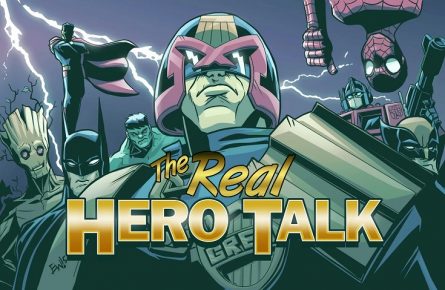Behind the Line: Alex St. John and ‘wage slaves’

Oh boy, check out this article by Alex St. John…
Alex St. John created quite a stir with this VentureBeat article he wrote where he chided people he described as “wage-slaves”, saying that people should be driven to work 80 hour weeks, and not to complain about crunch time. This was written as a response to another piece stating that crunch is a problem in the industry.
Not surprisingly, the online space is swelling to prove Alex St. John wrong, and I don’t agree with him either. We should be clear about one thing, though: no one will ever be able to change his mind.
Alex St. John’s Character
Alex St. John is a living, breathing embodiment of an old-school mentality, the kind that was in charge everywhere when I started in the games industry. This mentality can be simplisticly boiled down to “WORK MORE! WORK HARDER!”, as opposed to “work smarter, not harder”. This is the kind of mindset that treats the number of hours they have worked in a week as a badge of honor. There’s a certain hard nosed-ness that comes through his writing, reflective of the kind of willpower it takes to put forth the kind of work that he has. Another aspect, though, appears to be an inability to understand a different point of view.
He doesn’t appear to be willing, or able, to do what I called for last article, to welcome a challenge to their own point of view. Instead of welcoming it, he greets an opposing perspective with disdain:
To my great shock and disappointment, they never respond to this feedback with any sort of enlightenment or gratitude for my generous attempt at setting them free — usually, I just get rage.
However, I said in the last article that it’s important to welcome challenges to your point of view, and I do want to challenge mine. Part of that is understanding his.
What he’s right about
There are several points that Alex St. John makes that have merit.
One
If you look through his original piece, he throws around terms like “wage-slave” a lot, and if you consider the definition of the term, he has a point:
Wage-slave: A person who works for a wage, especially with total and immediate dependency on the income derived from such labor.
This isn’t the attitude of someone who wants to excel. Someone who is there just to get by is not going to be even an average worker. This core kernel is a true thought, and we should keep that in mind.
Two
While this is not in his original piece, he does say that he believes that people who perform excellently should be compensated for it. From his slideshow for recruiting and retaining people:
GIANTS can be worth 10X – 20X ordinary engineers… are they compensated like it?
-Stock Option Programs
-Bonus Programs
-Potential money is worth more than actual money. Progressive retention programs
or:
The “key-man bonus”. Privately offer your leaders achievement bonuses for the success of a project, everyone else will FOLLOW their lead.
This is an important point that has been ignored. He wants people who will work hard, and energetically, and wants to compensate those who are valuable to the project.
Three
“There is no “magic” management technique that produces high quality games on schedule, under budget […]”
This is also true. Producing a video game is one of the most complex ventures around, certainly in the entertainment sector. There will always be developments that will throw a schedule off, or cost estimates off.
Four
I’ve known a lot of stupid self-made millionaires — really, hundreds of them — and they’re usually young as well. I’m talking about kids who made some of the worst games you can imagine and got rich accidentally, working in their parent’s basement in the Florida Everglades.
Market success and value as a game do not go hand in hand. There are some examples of significant success for poor games. That is also true
Five
Adding more engineers onto a project increases overhead on coordination and management, so adding people isn’t always the right solution.
If we can be honest about these points that he is correct on, we can put together a better understanding of the person who said them, and why he’s wrong.

Pictured: What Alex St. John things happens for the entirety of OT
Pages: 1 2







![[PROTOTYPE]](http://www.enthusiacs.com/wp-content/uploads/2020/03/title-104x104.jpg)
Well, he’s certainly a piece of work.
Once again, I very much appreciate your look at both sides. When a person is this unabashedly weaseley, it’s difficult to try to see any good in their message.
It’s a pity that the few good points he brings up are academic, and could be proposed without trying to offend literally everybody that isn’t him.